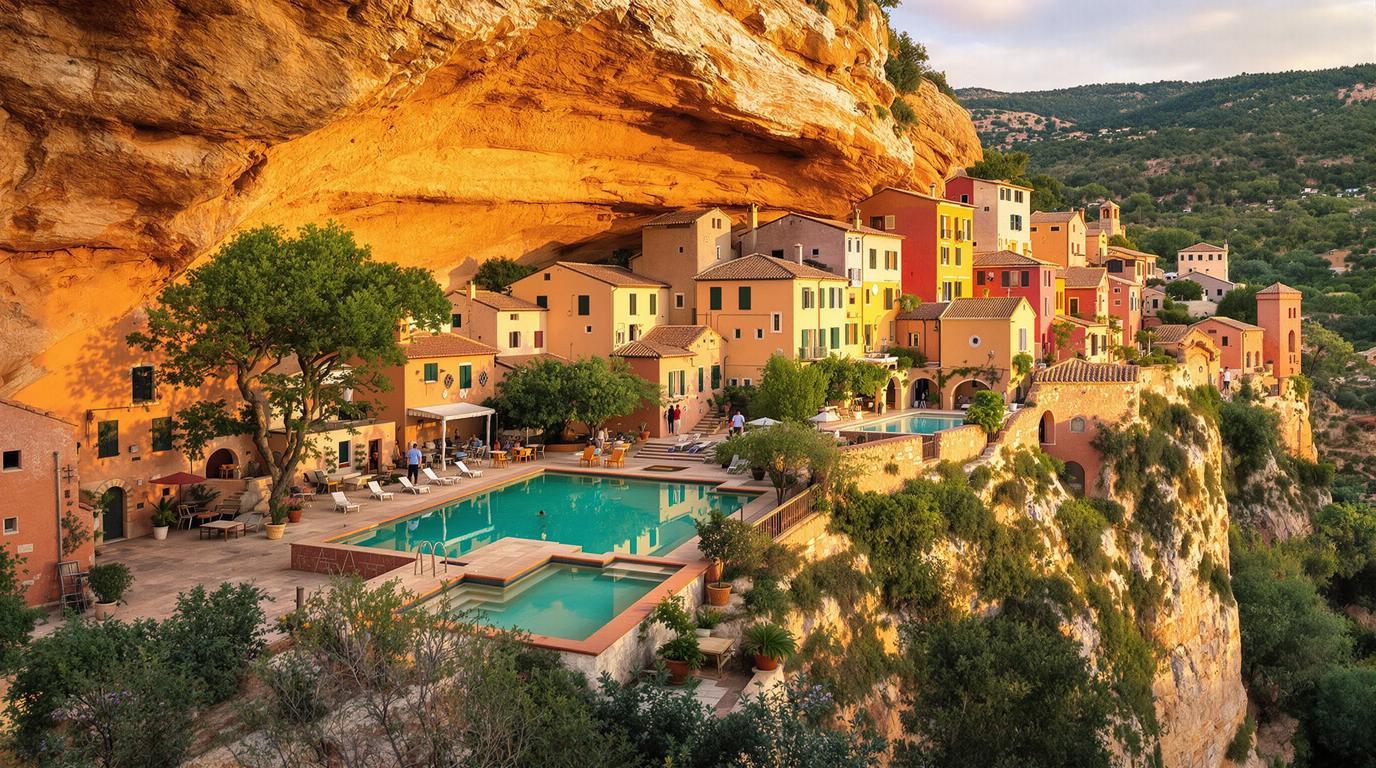Tucked away in the Upper Var region of Provence lies Salernes, a destination that manages to fly under the radar despite offering the quintessential French countryside experience many travelers dream about. This charming village, famous for its terracotta tiles and ceramics tradition, offers an authentic glimpse into Provençal life that mass tourism hasn’t yet discovered.
The ceramic capital you’ve never heard of
Salernes earned its reputation as “Ceramic City” through centuries of crafting distinctive terracotta tiles known as “tomettes.” These hexagonal red clay tiles once adorned floors worldwide, from Parisian apartments to Mediterranean villas. At the Terra Rossa Museum, housed in a converted tile factory, visitors can trace this fascinating heritage through interactive exhibits that bring the village’s ceramic tradition to life.
Local potter Matthieu Liévois explains,
“Our clay has a unique mineral composition that gives Salernes ceramics their distinctive red color. Families here have passed down techniques for generations, creating a living heritage you can still experience in our workshops today.”
A medieval treasure hidden in plain sight
Wandering through Salernes’ narrow streets reveals a medieval quarter that feels frozen in time. The ruins of a 13th-century castle crown the village, offering panoramic views of terracotta rooftops and the surrounding valley. Unlike other medieval villages along popular tourist routes, Salernes maintains an unhurried atmosphere where local life continues undisturbed.
The hidden valley that locals protect
Perhaps Salernes’ most magical secret is the Saint Barthélémy Valley, a verdant paradise where the Bresque river creates natural swimming pools beneath limestone cliffs. Locals gather here during summer months to escape the heat, picnicking under plane trees while children splash in the crystal-clear water. The valley remains relatively unknown to outsiders, preserving its tranquil atmosphere.
“We’ve been coming to these pools for generations,” shares resident Marie Dupont.
“My grandmother brought my mother here, my mother brought me, and now I bring my children. It’s our special place.”
A culinary scene that rivals famous neighbors
While nearby regions boast multiple Michelin stars, Salernes offers something equally precious: authentic Provençal cuisine without pretension. The village market (Wednesdays and Sundays) brings together local producers selling olive oils, honey, and regional cheeses rarely found beyond the area.
The crimson landscapes you won’t believe
The surrounding countryside reveals why Salernes earned its “Terra Rossa” nickname. Hiking paths wind through landscapes where the soil glows with a distinctive reddish hue, creating scenes reminiscent of America’s most dramatic canyons, yet on an intimate scale that feels discoverable rather than overwhelming.
A base for exploring hidden Provence
Salernes’ central location makes it perfect for exploring nearby treasures like Les Grottes de Villecroze (troglodyte cliff dwellings) and Sillans-la-Cascade, whose 42-meter waterfall remains one of Provence’s best-kept secrets. Unlike tourists rushing between major Provençal attractions, visitors based in Salernes can explore at a relaxed pace.
Where to stay and dine like a local
Accommodations range from charming B&Bs to countryside villas where you’ll wake to birdsong rather than traffic. For dining, seek out restaurants like Le Bout du Monde, where seasonal ingredients transform into simple yet extraordinary dishes. The village offers an authenticity that rivals even the most prestigious culinary destinations in France.
Historian Jean Bertrand notes,
“What makes Salernes special is that we’ve preserved not just our buildings but our way of life. Visitors don’t just see our heritage—they experience it alongside us.”
In Salernes, you’ll discover a France that exists beyond guidebook pages—a place where traditions endure not as performances for tourists but as the genuine rhythm of daily life. Here, the true luxury isn’t found in five-star amenities but in moments of authenticity that have become increasingly rare in our globalized world.
